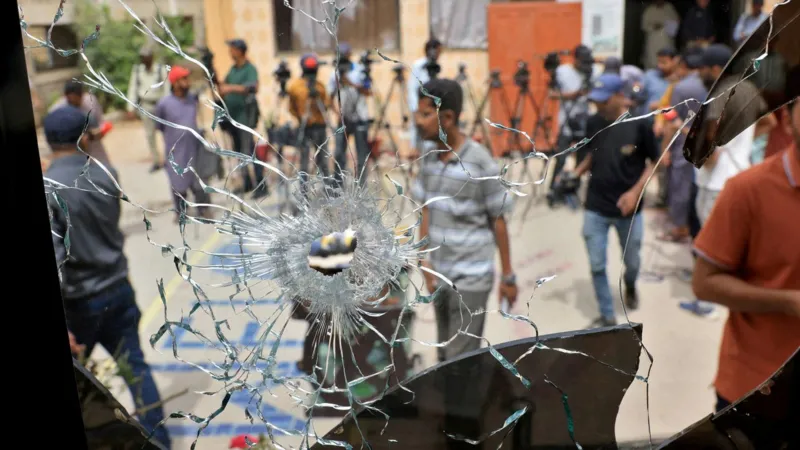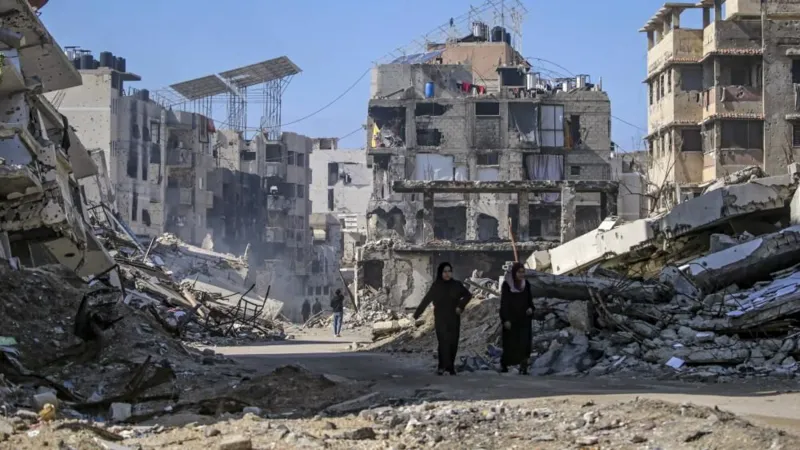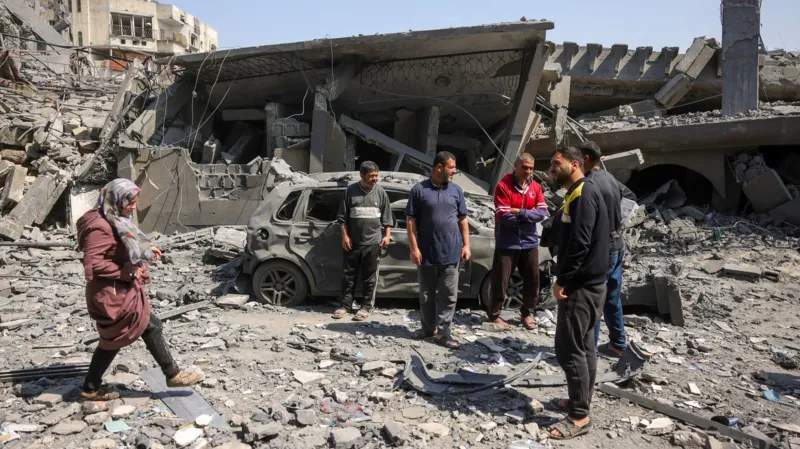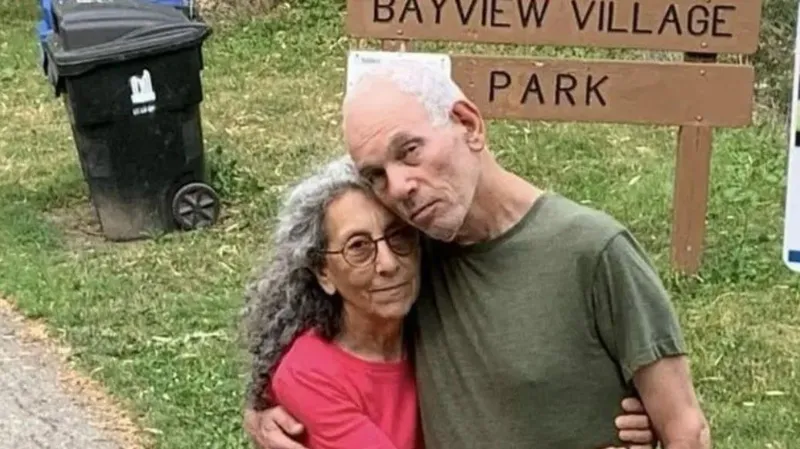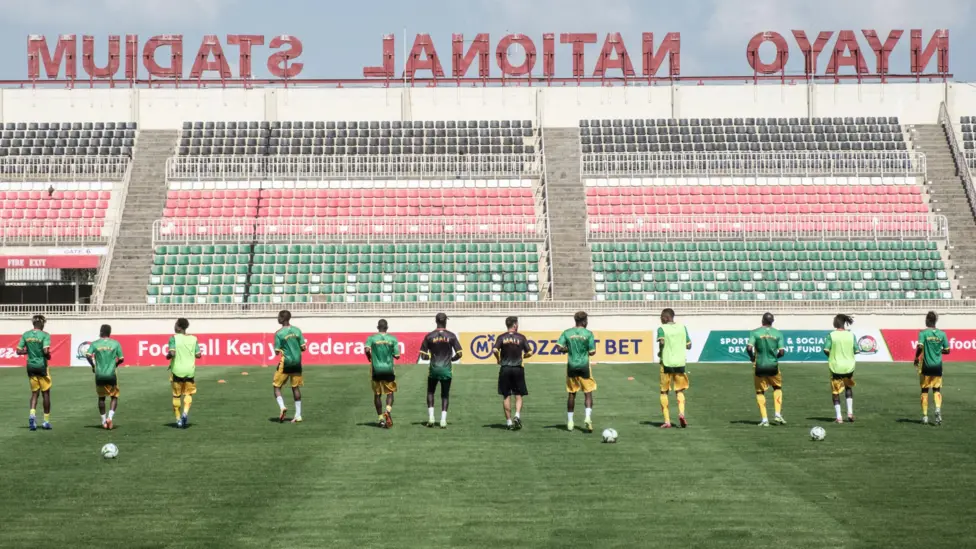Palestinian Christians struggle to find hope at Christmas
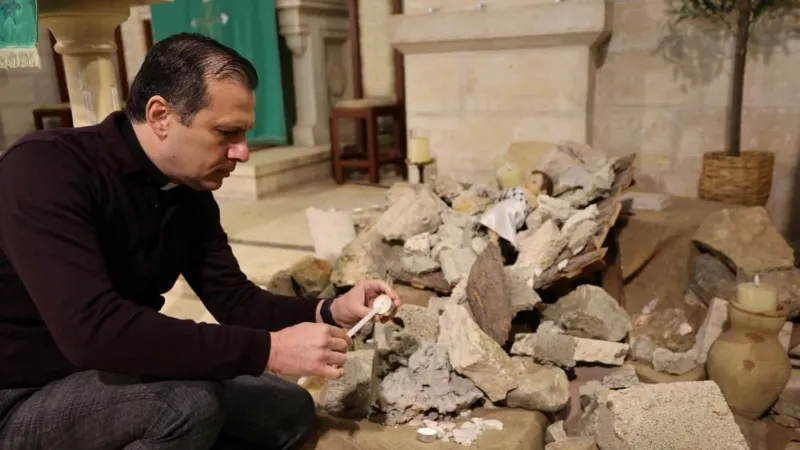
The little town of Bethlehem in the occupied West Bank has good reason to consider itself the capital of Christmas but this year it does not feel like it.
There are very few visitors at what is typically a peak time. There are not the usual cheerful street decorations nor the giant Christmas tree in front of the Nativity Church, built over the spot where it is believed that Jesus was born.
Public celebrations of Christmas have been cancelled for a second year because of the war in Gaza. Palestinian Christians are only attending religious ceremonies and family gatherings.
"This should be a time of joy and celebration," comments Reverend Dr Munther Isaac, a local Lutheran pastor. "But Bethlehem is a sad town in solidarity with our siblings in Gaza."
At his church, the Nativity scene shows baby Jesus lying in a pile of rubble. In the run-up to Christmas, a prayer service focused on the catastrophic situation in Gaza.
"It's hard to believe that another Christmas has come upon us and the genocide has not stopped," Isaac said in his strongly worded sermon. "Decision makers are content to let this continue. To them, Palestinians are dispensable."
Israel strongly denies accusations of genocide in Gaza and judges at the UN's top court have yet to rule in a case alleging genocide, brought by South Africa.
Many Bethlehemite Christians I meet feel despair and question what they see as the failure of other Christian communities around the world to speak out.
Close ties between members of the tiny Palestinian Christian community mean many locals have families and friends in Gaza.
"My mum told me that what we see on television doesn't capture one per cent of what's happening," says theologian, Dr Yousef Khouri, who is originally from Gaza City.
His parents and sister are among a few hundred Christians who have spent much of the past 14 months sheltering in two Gazan churches.
"They are subjected like the entire Gaza strip to starvation. Of course, almost non-sleep because of bombardment, because of all the drones hovering above their heads and the lack of medical attention and services," he says.
"We've lost friends and relatives."
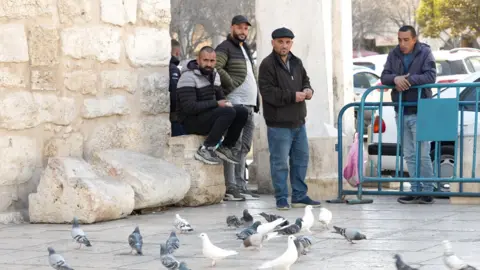
In Gaza, more than 45,000 people have been killed in the war that was unleashed in response to the Hamas attacks on southern Israel. Figures come from the Hamas-run health ministry but are considered reliable by the UN and others. The assault on 7 October 2023 killed some 1,200 people - Israelis and some foreigners - and led to about 250 being taken hostage.
Tensions have risen in the West Bank in parallel to the war. Israel has imposed new restrictions on Palestinians' movements and cancelled tens of thousands of permits for workers who used to cross into Jerusalem or Jewish settlements each day.
The economy is in dire straits especially in Bethlehem, which relies heavily on tourism which has almost entirely stopped. Guides stand idly by the Nativity Church, feeding the pigeons.
"If there [are] tourists, all the people will work: hotels, transportation, accommodation, all of them," says one guide, Abdullah. "But [if] there [are] no tourists, there is no life in Bethlehem city."
"I am broke! No business! For more than one year we stay home," exclaims Adnan Subah, a souvenir seller on Star Street.
"My son is a tour guide in the church, we stay home, all my kids stay. No jobs, no business, no tourists.
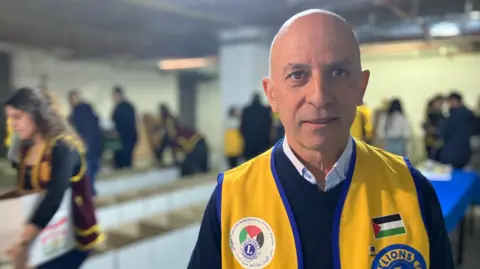
Many local Christian and Muslim families have emigrated in the past year. With the constant threat of violence and expansion of settlements on lands where Palestinians have long sought an independent state of their own, there is increased fear and uncertainty over the future.
But a community group in Bethlehem is trying to make a difference: packing up food parcels for those in need. There is no governmental assistance here, and volunteers have been collecting donations – including from those in the diaspora.
"As you know Christmas is the spirit of giving and love and joy. And we hope with this parcel we can give some hope and joy to the families in our area," says Wael Shaer, the head of the Palestine Lions Club.
I follow Wael making his first delivery to a woman living in an apartment nearby. Her husband is sick and out of work. She gratefully opens the box of supplies that she is given and takes an envelope of cash.
She and Wael exchange a customary holiday greeting wishing each other a peaceful year ahead.
"Mission accomplished!" Wael tells me as we head off.
"Spreading a little cheer at Christmas."
Source: BBC


































